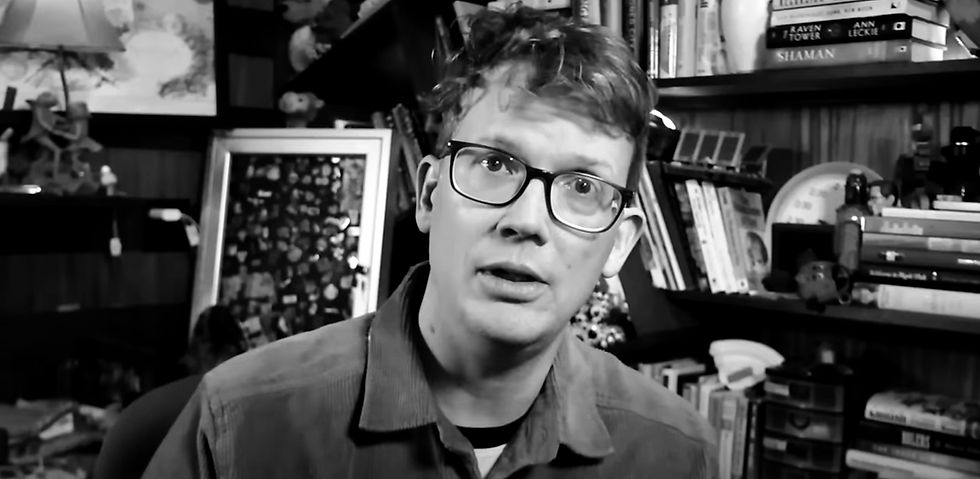conservative feminism
- sputnik sweetheart

- Nov 10, 2025
- 4 min read
![[sourced from nyt podcast, interesting times]](https://static.wixstatic.com/media/66fa2e_935ec2d2db2342fdb551cbc57bcbc165~mv2.png/v1/fill/w_980,h_509,al_c,q_90,usm_0.66_1.00_0.01,enc_avif,quality_auto/66fa2e_935ec2d2db2342fdb551cbc57bcbc165~mv2.png)
on november 6th, the new york times came out with an opinion piece titled "did women ruin the workplace?" this title alone garnered immediate, severe backlash, which led to it being renamed "did liberal feminism ruin the workplace?"
in an hour-long discussion hosted by ross douthat, two "conservative feminists," helen andrews and leah libresco sargeant, "analyze" the contemporary results of second-wave feminism, a world in which women seem to be dominating more and more industries, and how this phenomenon is, allegedly, "ruining" the workplace.
"conservative feminism" is a term i had never heard before of before. my initial impression was that it sounded oxymoronic. turns out this impression was correct.


the speakers
andrews, dressed in a white button-up and wire-rimmed glasses, with a stern look, believes "that feminism has failed us because it’s made our institutions too feminized, driving men and masculine virtues out."
sargeant, dressed in a polka-dot dress and pearl necklace, with a polite smile, believes "that... feminism has failed us by forcing women to suppress their nature and fit into workplaces and social systems made for men."
it felt like they were caricatures of the two sides they represent, even down to their tonal inflections. here we see the two archetypes of "acceptable" women in conservative society. the respectable coworker contrasted by the loving mother. the only issue is that women are expected to embody both roles simultaneously, yet fit into neither completely.
gender essentialism
ironically, the very same women who express their gender drastically differently share the same binary views of gender.
success in the masculine sense is found in the workplace, while success in the feminine sense is found in the home. men are direct, women are indirect. men are strong, women are weak. men are rational, women are loving, etc.
the two women do bring up legitimate critiques on pornography, corporatization, and the hollow democratic party, and yet, they somehow find a way to blame all of society's shortcomings on feminists, or even further, on women.
"wokeness"
mentioned quite literally every two to three minutes (i kept count) is the illusory word "wokeness." everyone at this table agrees that this is the big, bad guy. aside from being defined as a disease, there is no absolutely no dissection of what it really is other than bad.
andrews gets closest to explaining it. she explains her process, saying that she "started by observing our institutions in all the ways that they seem very clearly self-evidently broken and not working the way that they’re supposed to, in ways that you could sum up in the word 'wokeness.'" in the same breath, she adds that "wokeness is distinctively feminine and feminized."
now let's look at the premises provided and construct a simple syllogism—
bad = wokeness
wokeness = feminine
-----------------
therefore: feminine = bad
"weakness"
to be fair, sargeant does call out andrews' line of thinking. she doesn't think that wokeness, or any abstract concept for that matter, can be purely feminine or masculine.
but let's look at some of her own views.
she believes that women are "the more dependent sex" and that working/prioritizing work stops women from fulfilling their natural duties of reproduction. "tota mulier in utero" we all chant in unison!
and why does this matter?
cos if we not weak, how man feel strong? uwu
the baby talk may seem like an exaggeration, but here is the full statement:
"As a married woman, I’ve loved my husband the whole time, but being pregnant meant depending on him in a way that was different than at any other part of our marriage. And I think the later marriage is, and the rarer it is, the less often men — who are, on average, stronger — find a reason their strength is required. I think the more that both in a community, starting with young men, there’s a real sense that because you are larger and stronger, that we need something from you to make this whole community run, and that will continue through your marriage, the easier it is to make the case for men and women to come together."
-leah libresco sargeant
okay. so. the idea here is that we need to get married and have kids so that men feel useful, and this is the solution for bringing men and women together. it is essentially a woman's job to give a man purpose. if she chooses otherwise, only discord will follow.
conclusions
while the title is posed as a question, it reads more like a statement; it might as well have been named "women are ruining the workforce." this is blatant sexism poorly hidden inside of a "feminist" trojan horse. yes, if we have two women as our mouthpieces and express sexist beliefs in an obtuse, roundabout way, we can't be misogynistic!
both andrews and sargeant's views aim to prove the ineptitude of women while aggrandizing men, yet they still seemed to hate each other by the end. it was frankly depressing to watch the two women (with the same goal !!) pit against each other. at one point, andrews even uses the word "feminine" as an insult against sargeant.
the reality is that there is no salvation for women in acting hyper-feminine or hyper-masculine. you can appease to men in an infinite number of ways, doing what they want you to, saying what they want you to, believing what they want you to, but at the end of the day, it won't grant you your freedom.
there is unfortunately so much more i didn't have the time to get into, but i think we can all agree that whatever this opinion piece was, it definitely wasn't feminism. for one of america's biggest newspapers to publish something so backwards under the guise of "productive dialogue" is negligence at best, and evil at worst.
real question is:
did the new york times ruin my day?
yes.
thank you for having me,
sputnik sweetheart ⋆˙⟡♡
![[sourced from pinterest]](https://static.wixstatic.com/media/66fa2e_28cd01763c7f4f66b2b302275d1758b2~mv2.jpg/v1/fill/w_735,h_634,al_c,q_85,enc_avif,quality_auto/66fa2e_28cd01763c7f4f66b2b302275d1758b2~mv2.jpg)






Comments